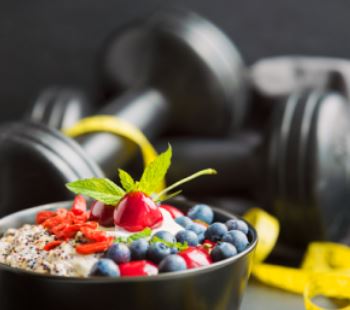Sports nutrition plays a pivotal role in athletic performance, recovery, and overall health. Whether you’re a weekend warrior or a professional athlete, understanding your macronutrient needs, optimizing pre- and post-exercise meals, and leveraging the right supplements can make a significant difference. To shed light on this essential topic, we turned to Dr. Jason Pirozzolo, a respected expert in sports medicine and nutrition.
“Fueling the body correctly is just as important as the training itself,” says Dr. Jason Pirozzolo. “The right balance of macronutrients—carbohydrates, proteins, and fats—provides the energy and nutrients required for peak performance and recovery.” Carbohydrates are the body’s primary energy source, particularly for high-intensity activities. Proteins are essential for muscle repair and growth, while healthy fats support long-term energy and cellular function.
Most importantly, the timing and composition of meals can significantly impact performance. Pre-exercise meals should focus on easily digestible carbohydrates to provide a quick energy boost. “For most athletes, consuming a meal rich in carbohydrates and moderate in protein about 2–3 hours before exercise is ideal,” explains Dr. Jason Pirozzolo. Simple snacks like bananas, oatmeal, or a peanut butter sandwich can provide sustained energy.
However, post-exercise nutrition is just as critical. After intense activity, the body needs to replenish glycogen stores and repair muscle tissue. “A combination of protein and carbohydrates within 30 minutes of exercise is optimal,” notes Dr. Jason Pirozzolo. Recovery drinks, Greek yogurt with fruit, or a balanced meal with lean protein and whole grains are excellent choices.
Hydration also plays a key role in sports nutrition. Proper hydration supports muscle function, temperature regulation, and endurance. During extended or intense workouts, athletes should consider electrolyte-enhanced beverages to replace lost minerals. “Electrolytes like sodium and potassium are crucial for preventing muscle cramps and maintaining fluid balance,” says Dr. Jason Pirozzolo.
Besides that, supplements can complement a solid nutrition plan, but they should never replace whole foods. Popular options like whey protein, creatine, and branched-chain amino acids (BCAAs) are widely used to support performance and recovery. “Supplements can be helpful, but they’re not magic solutions,” emphasizes Dr. Jason Pirozzolo. “They work best when paired with a balanced diet and proper training.”
For those considering supplements, Dr. Jason Pirozzolo advises:
- Choose reputable brands with third-party testing for quality assurance.
- Avoid excessive reliance on supplements; focus on whole foods first.
- Consult with a healthcare professional to ensure the supplement aligns with your specific goals and needs.
However, not all dietary strategies work for everyone. Individual differences in metabolism, activity level, and goals mean that personalized nutrition plans yield the best results. “What works for one athlete may not work for another,” explains Dr. Jason Pirozzolo. “That’s why it’s important to tailor your approach based on your unique requirements.”
Advances in sports nutrition research are constantly evolving, offering new insights into how the body uses fuel. From plant-based diets to intermittent fasting, emerging trends are influencing how athletes approach their nutrition. Most importantly, the fundamentals remain unchanged: prioritize nutrient-dense foods, stay hydrated, and balance macronutrients.
For athletes looking to enhance performance, recovery, and overall health, proper nutrition is the foundation of success. With guidance from experts like Dr. Jason Pirozzolo, staying informed about the latest strategies can help you achieve your goals.
For expert advice on sports and orthopedic injuries, recovery strategies, and cutting-edge treatments, follow Dr. Jason Pirozzolo for insights into the latest developments in sports medicine and orthopedic medicine. You may also visit a Key West orthopedic clinic for more information.

